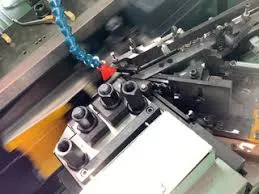
-
 Afrikaans
Afrikaans -
 Albanian
Albanian -
 Amharic
Amharic -
 Arabic
Arabic -
 Armenian
Armenian -
 Azerbaijani
Azerbaijani -
 Basque
Basque -
 Belarusian
Belarusian -
 Bengali
Bengali -
 Bosnian
Bosnian -
 Bulgarian
Bulgarian -
 Catalan
Catalan -
 Cebuano
Cebuano -
 Corsican
Corsican -
 Croatian
Croatian -
 Czech
Czech -
 Danish
Danish -
 Dutch
Dutch -
 English
English -
 Esperanto
Esperanto -
 Estonian
Estonian -
 Finnish
Finnish -
 French
French -
 Frisian
Frisian -
 Galician
Galician -
 Georgian
Georgian -
 German
German -
 Greek
Greek -
 Gujarati
Gujarati -
 Haitian Creole
Haitian Creole -
 hausa
hausa -
 hawaiian
hawaiian -
 Hebrew
Hebrew -
 Hindi
Hindi -
 Miao
Miao -
 Hungarian
Hungarian -
 Icelandic
Icelandic -
 igbo
igbo -
 Indonesian
Indonesian -
 irish
irish -
 Italian
Italian -
 Japanese
Japanese -
 Javanese
Javanese -
 Kannada
Kannada -
 kazakh
kazakh -
 Khmer
Khmer -
 Rwandese
Rwandese -
 Korean
Korean -
 Kurdish
Kurdish -
 Kyrgyz
Kyrgyz -
 Lao
Lao -
 Latin
Latin -
 Latvian
Latvian -
 Lithuanian
Lithuanian -
 Luxembourgish
Luxembourgish -
 Macedonian
Macedonian -
 Malgashi
Malgashi -
 Malay
Malay -
 Malayalam
Malayalam -
 Maltese
Maltese -
 Maori
Maori -
 Marathi
Marathi -
 Mongolian
Mongolian -
 Myanmar
Myanmar -
 Nepali
Nepali -
 Norwegian
Norwegian -
 Norwegian
Norwegian -
 Occitan
Occitan -
 Pashto
Pashto -
 Persian
Persian -
 Polish
Polish -
 Portuguese
Portuguese -
 Punjabi
Punjabi -
 Romanian
Romanian -
 Russian
Russian -
 Samoan
Samoan -
 Scottish Gaelic
Scottish Gaelic -
 Serbian
Serbian -
 Sesotho
Sesotho -
 Shona
Shona -
 Sindhi
Sindhi -
 Sinhala
Sinhala -
 Slovak
Slovak -
 Slovenian
Slovenian -
 Somali
Somali -
 Spanish
Spanish -
 Sundanese
Sundanese -
 Swahili
Swahili -
 Swedish
Swedish -
 Tagalog
Tagalog -
 Tajik
Tajik -
 Tamil
Tamil -
 Tatar
Tatar -
 Telugu
Telugu -
 Thai
Thai -
 Turkish
Turkish -
 Turkmen
Turkmen -
 Ukrainian
Ukrainian -
 Urdu
Urdu -
 Uighur
Uighur -
 Uzbek
Uzbek -
 Vietnamese
Vietnamese -
 Welsh
Welsh -
 Bantu
Bantu -
 Yiddish
Yiddish -
 Yoruba
Yoruba -
 Zulu
Zulu
Explore Innovative Reed Thread Roller Solutions for Enhanced Precision and Efficiency in Manufacturing
Understanding Reed Thread Roller Products A Comprehensive Overview
In the realm of manufacturing and engineering, the precision of threaded components is paramount. One of the most reliable and efficient methods for creating high-quality threads is through the use of thread rolling processes. In this context, Reed Thread Roller products have gained significant recognition for their exceptional performance and durability.
What is Thread Rolling?
Thread rolling is a cold forming process that is used to create external threads on cylindrical parts. Unlike traditional machining methods, which cut material away to form threads, thread rolling deforms the material to create the desired thread profile. This process not only enhances the physical properties of the material but also produces a superior surface finish. The resulting threads are typically stronger and more resistant to wear and fatigue compared to those machined through traditional methods.
Reed Thread Rollers A Leader in the Industry
Reed, a prominent name in the manufacturing industry, offers a wide range of thread roller products known for their reliability and efficiency. Established with a commitment to quality, Reed has been innovating thread rolling technology to meet the evolving demands of various sectors, including automotive, aerospace, and industrial machinery.
One of the standout features of Reed Thread Roller products is their versatility. They are designed to accommodate a variety of materials, including steel, aluminum, and plastic, making them suitable for crafting threads in diverse applications. Furthermore, Reed’s thread rollers can handle different thread types and sizes, allowing manufacturers to maintain flexibility in production.
Advantages of Using Reed Thread Roller Products
reed thread roller product

1. Enhanced Strength and Durability The cold forming process used in thread rolling significantly increases the tensile strength of the threaded component. Reed Thread Rollers ensure that the threads created can withstand heavy loads and extreme conditions, making them ideal for demanding applications.
2. Improved Production Efficiency With Reed Thread Rollers, manufacturers can achieve high production rates while maintaining tight tolerances. The process is faster than traditional cutting methods, resulting in cost savings and increased output.
3. Reduced Material Waste Since thread rolling involves the deformation of material rather than cutting, there is minimal waste generated during the process. This aspect contributes to a more sustainable manufacturing approach and helps companies reduce material costs.
4. Superior Surface Finish The smooth and consistent threads produced by Reed Thread Rollers enhance the overall quality of the final product. This superior surface finish is crucial for applications where friction and wear are significant factors.
5. Customization Options Reed offers a wide range of customization options for their thread roller products. This flexibility allows manufacturers to tailor the equipment to meet specific production needs, ensuring optimal performance in diverse environments.
Conclusion
In summary, Reed Thread Roller products represent a significant advancement in the manufacturing of threaded components. Their unique approach to thread rolling provides numerous benefits, including enhanced strength, improved efficiency, and reduced waste. As industries continue to evolve and push for higher standards of quality and performance, the role of companies like Reed becomes increasingly vital. By investing in high-quality thread roller technology, manufacturers can ensure they remain competitive in an ever-changing market. With a commitment to innovation and excellence, Reed Thread Roller products stand at the forefront of modern manufacturing practices, paving the way for future developments in the field.
